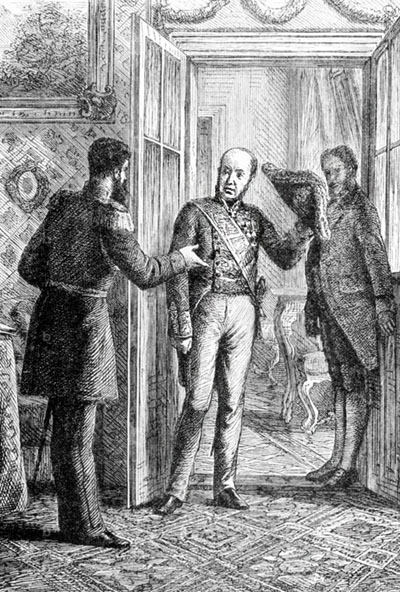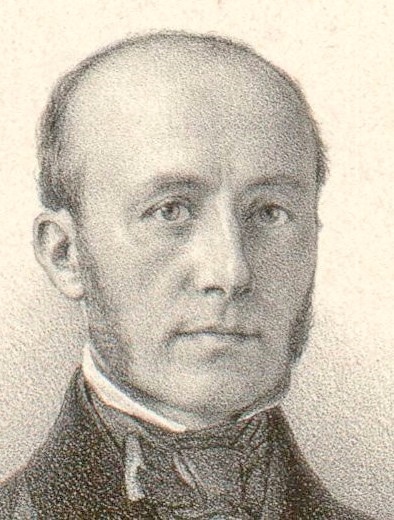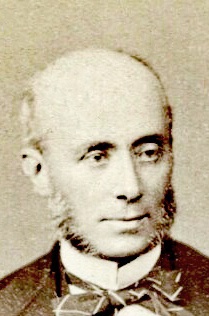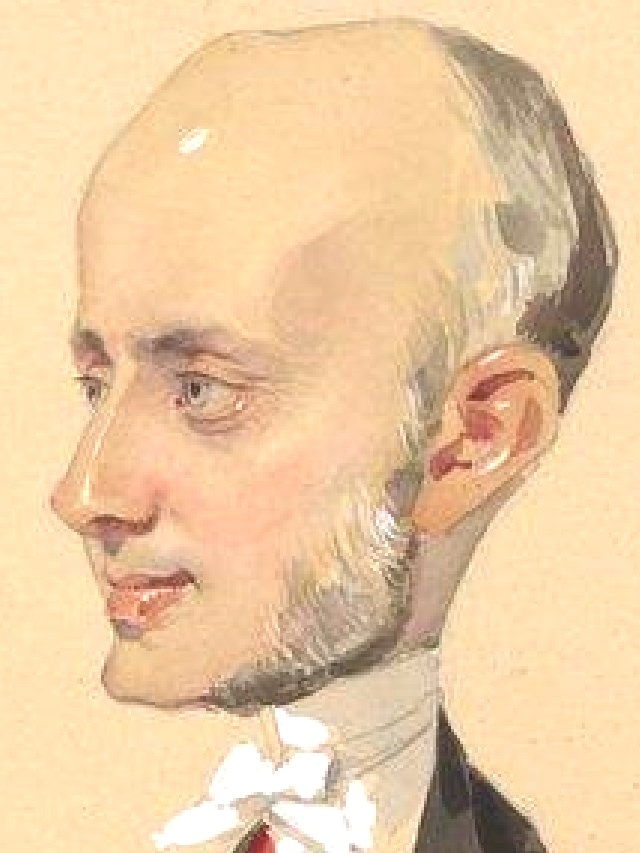Count Vincent Benedetti (1817-1900), diplomat, Secretary of Congress
1st image: Soirée; 2nd: engraving from photo Mayer & Pierson (1852); 3rd: by LeJeune (1869); 4th: caricature by Eugène Giraud drawn on May 24, 1867 (with cravate rouge); (Alternative: Boulay).
Vincent Benedetti, of Corsican descent like Franceschini-Pietri04b, played a critical role in diplomacy during the Second Empire and was notably involved in the events leading to its downfall.
During the early 1850s, Benedetti served as ambassador in Palermo and Constantinople, only relocating to Paris in early 1855. He was caricatured by Eugène Giraud11 at a vendredi-soirée more than a decade after Une Soirée au Louvre was completed.
Benedetti entered the French Foreign Office in 1840 as secretary of the embassy in Egypt. He was later assigned to Sicily, where he became a supporter of Italian unification, before moving to Constantinople. After declining the post of ambassador to Tehran in 1855, he became Secretary of Congress the same year.
Highly regarded for his intelligence and courtesy, Benedetti —alongside his wife Mariethe— was a popular guest at many soirées. His close friendship with Minister Rouher in the 1860s secured his appointment as Imperial Ambassador to Prussia.

In his role as ambassador, Benedetti met with King William of Prussia in Ems on July 13, 1870. His discussions with Otto von Bismarck centered on Prussian expansion and the potential candidacy of Prince Leopold of Hohenzollern for the Spanish throne. Although Hohenzollern later withdrew his candidacy, tensions remained high.
Napoleon III pressured Prussia on the matter, but Bismarck manipulated the diplomatic exchange, omitting Benedetti’s notes emphasizing how cooperative the meeting had been.
This altered version, known as the Ems Telegram, inflamed tensions. Feeling provoked, Napoleon III threatened war against Prussia.
Bismarck —unexpectedly— accepted the challenge, leading to the Franco-Prussian War (July 19, 1870), which resulted in the collapse of the Second Empire within months.
Reflecting on the crisis, Viel-Castel43 famously remarked in his Mémoires:
"La France a été jouée par Monsieur de Bismarck." (France was played by Mr. Bismarck)



